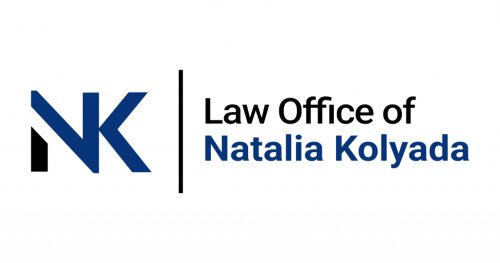Best Employer Lawyers in Georgia
Share your needs with us, get contacted by law firms.
Free. Takes 2 min.
Or refine your search by selecting a city:
List of the best lawyers in Georgia, United States
About Employer Law in Georgia, United States
Employer law in Georgia refers to the rules and regulations that govern the relationship between employers and employees within the state. These laws outline employers' obligations regarding hiring, wages, working conditions, safety, discrimination, termination, and employee rights. Both federal and state laws apply, but Georgia has its own statutes and regulations that employers must follow. Understanding these laws helps both employers and employees ensure a fair and lawful workplace.
Why You May Need a Lawyer
Seeking legal help may be necessary in several employer-related situations in Georgia. Common scenarios include:
- Facing allegations or accusations of workplace discrimination or harassment
- Handling wage disputes, unpaid overtime, or misclassification of employees
- Managing wrongful termination claims
- Ensuring compliance with state and federal labor laws and regulations
- Drafting or reviewing employee handbooks, policies, and employment contracts
- Responding to audits or investigations by government agencies
- Dealing with workers' compensation claims or workplace safety issues
- Navigating issues related to employee leave, such as the Family and Medical Leave Act (FMLA)
- Mergers, acquisitions, or downsizing that affect employees
- Defending against lawsuits brought by current or former employees
In these situations, a lawyer experienced in Georgia employer law can provide guidance, mitigate risks, and help resolve disputes.
Local Laws Overview
In Georgia, employer laws cover a broad range of workplace issues. Some important aspects include:
- At-Will Employment: Georgia follows the at-will employment doctrine, meaning employers can terminate employees at any time for any legal reason, unless there is a contract stating otherwise.
- Anti-Discrimination Protections: Georgia law prohibits discrimination based on race, color, national origin, sex, religion, disability, and age. Federal laws may offer additional protections.
- Wage and Hour Laws: Georgia adopts the federal minimum wage unless the state minimum is higher. Overtime pay and classifications are primarily governed by the Fair Labor Standards Act (FLSA).
- Workplace Safety: Occupational Safety and Health Administration (OSHA) standards apply. Employers must maintain safe work environments.
- Unemployment Insurance: Employers must contribute to the state's unemployment insurance fund and comply with reporting requirements.
- Employee Leave: Georgia law does not mandate paid sick leave or vacation time, but employers must comply with applicable federal laws such as FMLA.
- Workers' Compensation: Most Georgia employers must provide workers' compensation coverage for job-related injuries.
- Background Checks and Drug Testing: Employers may conduct background checks and drug testing within legal limits and disclosure requirements.
Employers in Georgia should stay updated on both state and federal law changes and ensure they meet all relevant obligations.
Frequently Asked Questions
What is at-will employment and how does it affect me as an employer in Georgia?
At-will employment in Georgia allows an employer to terminate an employee at any time, for any legal reason, or for no reason at all, unless a contract specifies otherwise. This gives flexibility but does not allow discrimination or violation of public policy.
What are the minimum wage requirements for Georgia employers?
Georgia's minimum wage is currently set at $5.15 per hour for some employers, but most employers are subject to the federal minimum wage, which as of 2024 is $7.25 per hour.
Do I need to provide paid sick leave or vacation time?
Georgia law does not require employers to offer paid sick leave or vacation time. However, if an employer offers such benefits, they must follow their written policy and any applicable federal law.
How do anti-discrimination laws apply to my workplace?
Georgia employers are prohibited from discriminating against employees based on certain protected characteristics. Employers must comply with both state and federal anti-discrimination laws, including those enforced by the Equal Employment Opportunity Commission (EEOC).
Are Georgia employers required to carry workers' compensation insurance?
Most employers with three or more full-time, part-time, or seasonal employees must carry workers' compensation insurance for job-related injuries or illnesses.
What should I include in an employee handbook?
An employee handbook should outline company policies, employment practices, benefits, disciplinary procedures, safety rules, anti-discrimination provisions, and how complaints or grievances are addressed.
Can I require drug testing for my employees?
Yes, Georgia law allows employers to require drug testing, provided it is done consistently and does not discriminate. Written notice and clear policies are recommended to avoid legal issues.
How does the law treat independent contractors versus employees?
Misclassifying employees as independent contractors can result in legal and financial penalties. Georgia follows federal guidelines for determining worker status, focusing on control over work and the nature of the relationship.
What steps should I take when terminating an employee?
Employers should document reasons for termination, ensure no discrimination or retaliation is involved, follow internal processes, and provide final paychecks as required by law.
How can I stay compliant with both state and federal employment laws?
Regularly review policies and procedures, stay informed of legal changes, provide regular training, and consult with legal counsel when needed. Membership in professional organizations and use of official resources can also help.
Additional Resources
Several resources are available to employers in Georgia seeking guidance on employment law:
- Georgia Department of Labor
- United States Department of Labor
- Georgia Commission on Equal Opportunity
- Occupational Safety and Health Administration (OSHA)
- Equal Employment Opportunity Commission (EEOC)
- Georgia State Board of Workers' Compensation
- Local chambers of commerce and business associations
- State Bar of Georgia Lawyer Referral Service
- Business consulting firms specializing in human resources
Next Steps
If you need legal assistance regarding employer issues in Georgia, start by outlining your specific concerns or legal questions. Gather any relevant documentation, such as employee handbooks, contracts, correspondence, and records of the issue. Consider reaching out to a qualified employment attorney who understands Georgia laws. Take advantage of consultations offered by legal professionals or referral services. Remaining proactive and informed will help you manage employer-employee relationships effectively and minimize legal risks in your workplace.
Lawzana helps you find the best lawyers and law firms in Georgia through a curated and pre-screened list of qualified legal professionals. Our platform offers rankings and detailed profiles of attorneys and law firms, allowing you to compare based on practice areas, including Employer, experience, and client feedback.
Each profile includes a description of the firm's areas of practice, client reviews, team members and partners, year of establishment, spoken languages, office locations, contact information, social media presence, and any published articles or resources. Most firms on our platform speak English and are experienced in both local and international legal matters.
Get a quote from top-rated law firms in Georgia, United States — quickly, securely, and without unnecessary hassle.
Disclaimer:
The information provided on this page is for general informational purposes only and does not constitute legal advice. While we strive to ensure the accuracy and relevance of the content, legal information may change over time, and interpretations of the law can vary. You should always consult with a qualified legal professional for advice specific to your situation.
We disclaim all liability for actions taken or not taken based on the content of this page. If you believe any information is incorrect or outdated, please contact us, and we will review and update it where appropriate.
Browse employer law firms by city in Georgia
Refine your search by selecting a city.










